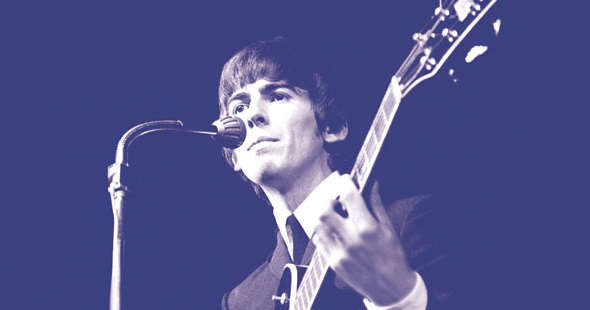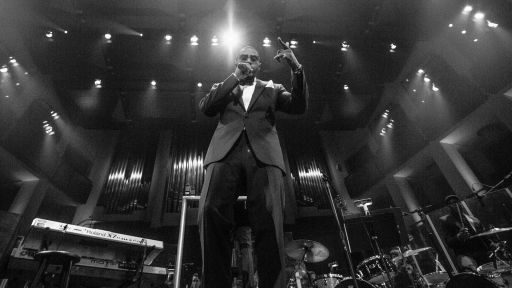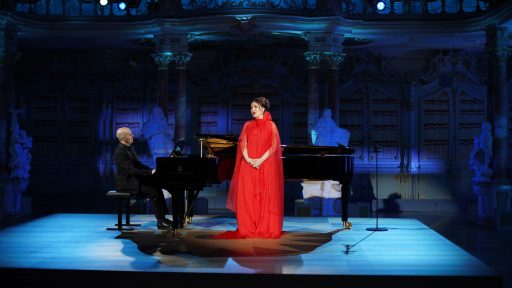The legacy of the enigmatic George Harrison will always be linked with the Beatles. The overlooked “quiet” Beatle who wrote such great songs as “Something,” “Here Comes the Sun,” and “While My Guitar Gently Weeps,” which are among the band’s most popular works, never quite attained the songwriting reputation of Lennon and McCartney while the Beatles were still together. However, once freed from the confines of Beatledom, he amassed a significant oeuvre as a solo artist, releasing ten albums over three decades. George Harrison was the first of the former Fab Four to top the charts, with his song “My Sweet Lord” from his Grammy-nominated debut album, ALL THINGS MUST PASS; the first to tour as a solo artist; and the first to start his own record label, the aptly named Dark Horse Records. In 2002, BRAINWASHED, his final album, was released posthumously to critical acclaim, and his face graced prominent magazine covers. Fans and commentators took the opportunity of his untimely death from cancer in 2001 to wonder at the impact of one musician in particular and of the Beatles in general.
This is the darker side of what may be referred to as Beatle Re-Mania, those subtle new waves of Beatlemania-style media saturation that have periodically washed over America ever since the Fab Four first landed at New York’s JFK Airport early in 1964. More recently, a less burdensome Beatle memorial took place as February 9, 2004 marked the 40th anniversary of the band’s first trip to America, and THE ED SULLIVAN SHOW appearance that triggered the original stateside Beatlemania and launched the first surge of the British Invasion. Accordingly, the date was met with no small amount of Beatle-related commemoration: newspapers across the country included articles highlighting the anniversary; David Letterman played their original ED SULLIVAN SHOW performance in its entirety on his late night show; and the 46th Annual Grammy Awards, which was telecast live on the evening of February 9, featured a Beatles musical tribute.
Beatle Re-Mania has existed for years, but there was a decidedly contemporary feel to this latest trend in nostalgia, perhaps most evident at Beatles.com, the band’s official Web site. Now, it may seem counterintuitive for a band that broke up three decades before the advent of the World Wide Web to have a site, especially since current musical groups generally use the Internet to post tour dates and notify their fans of release dates for their latest recordings … but this is the Beatles, after all. And, as it turns out, Beatles.com has no shortage of recently released music to promote.
THE BEATLES 1 — A “greatest hits” CD, compiling 27 of the Beatles’ #1 hit songs. Released in 2000.
THE BEATLES ANTHOLOGY on DVD — An eight-part television documentary that was broadcast in 1995 and accompanied by three double CDs of rare and previously unreleased music. Originally released on VHS in 1996; the DVD came out in April 2003.
LET IT BE … NAKED — A revamped version of the last Beatles studio album to be released, LET IT BE, that seeks to amend the controversy surrounding Phil Spector’s last-minute production work, particularly the syrupy strings and choir he added, much to Paul McCartney’s dismay, to “The Long and Winding Road.” Released on CD in October 2003.
THE BEATLES: THE FIRST U.S. VISIT — Originally released in 1964 as WHAT’S HAPPENING! THE BEATLES IN THE U.S.A., a film by Albert and David Maysles that documents the band’s arrival in America. The updated DVD was released on February 3, 2004.
What’s marvelous about this new digitized material is that all of it has been available for years, if in slightly different, arguably less robust formats. Certainly the band’s #1 hits have never all been collected on one disc, and LET IT BE has been treated to a rejuvenating makeover. The Maysles’ documentary includes bonus footage that is reputedly better than the original film, but by and large, these changes constitute mere tinkerings that are nevertheless eagerly reincorporated into the group’s evolving legend. That all these pieces have been able to adapt to the changing nature of media bodes well for the band’s long-term legacy. George Harrison and John Lennon may be gone, but John, Paul, George, and Ringo endure; indeed, the Beatles exist, and will remain, on a plane all their own.
–John Uhl








